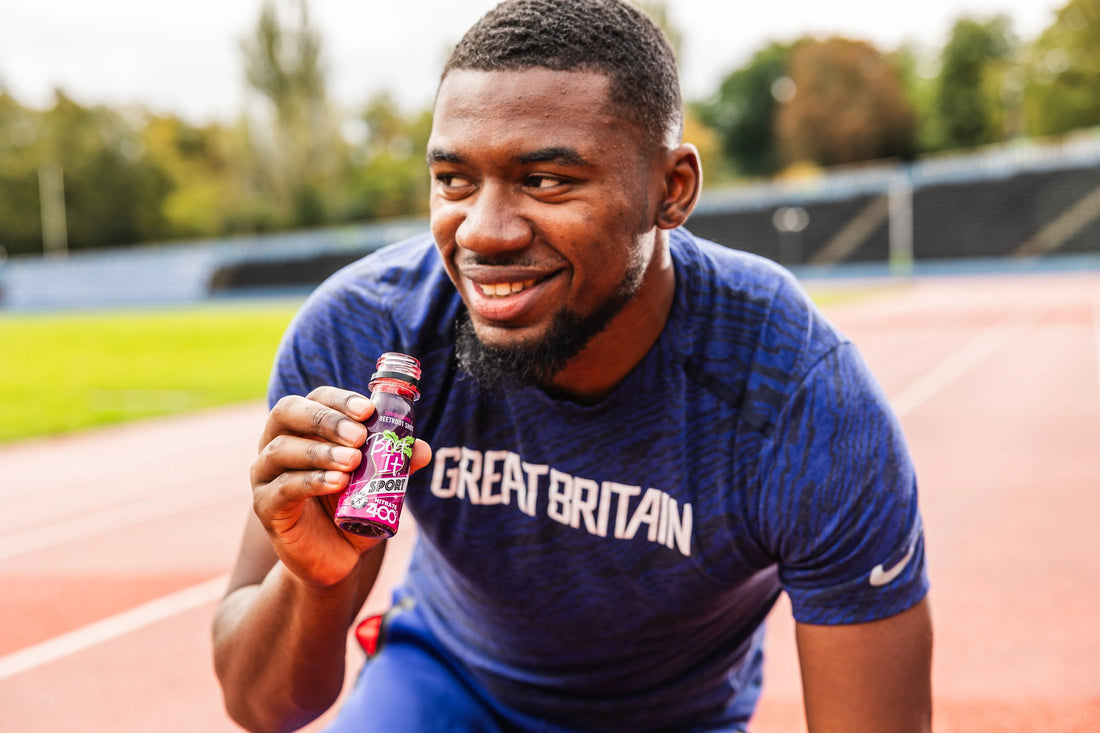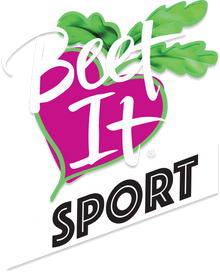
Top Benefits of Beet Juice for Runners Explained
Picture this: You're lining up at the start of your next big race, heart pounding with excitement. You’ve trained for months, carefully adjusted your nutrition, and dialed in your recovery....
Picture this: You're lining up at the start of your next big race, heart pounding with excitement. You’ve trained for months, carefully adjusted your nutrition, and dialed in your recovery. But what if there was a simple, natural way to give yourself an extra edge?
In recent years, more runners and endurance athletes have been turning to natural performance boosters rather than relying solely on traditional sports supplements. One standout option rapidly gaining popularity is beet juice, especially from trusted brands like Beet It Sport.
Packed with naturally occurring nitrates that support oxygen efficiency and blood flow, beet juice has captured the interest of recreational joggers and elite marathoners alike. In this article, we’ll explore why beet juice for runners is more than just a fad — it’s a research-backed approach to enhancing endurance, power, and recovery.
Whether you’re curious about the science behind it or wondering how to incorporate it into your training, this comprehensive guide will give you all the answers you need.
What Makes Beet Juice a Runner’s Secret Weapon?

Beet Juice for Runners: An Overview
So, what exactly is beet juice, and why is it creating so much buzz among runners?
Beet juice is extracted from beetroots, a vibrant root vegetable known for its deep red color. Beyond its striking appearance, beet juice is rich in dietary nitrates — natural compounds that the body converts into nitric oxide.
Nitric oxide plays an essential role in improving blood flow and oxygen delivery to working muscles. This is especially important for runners, as enhanced oxygen transport can help delay fatigue and support better performance.
Apart from nitrates, beet juice contains antioxidants, vitamins like vitamin C and folate, and minerals such as potassium and magnesium. All these components contribute to overall well-being and athletic efficiency.
Many runners describe beet juice as a "secret weapon" because of its unique ability to support both short bursts of power and long-distance endurance.
The Science Behind Beetroot Juice and Running Performance
Beetroot Juice and Running
The buzz around beetroot juice isn’t just marketing hype — there’s solid science behind it. When you drink beetroot juice, the dietary nitrates are converted by bacteria in your mouth into nitrites and then into nitric oxide in your blood.
This nitric oxide acts as a vasodilator, which means it widens blood vessels and improves blood flow. Better blood flow means more oxygen and nutrients reach your muscles during a run, helping them perform efficiently and recover faster afterward.
Research has shown that consuming beet juice can lower the oxygen cost of exercise, meaning you use less energy to maintain a given pace. For runners, this translates into being able to run longer before fatigue sets in.
If you’re wondering about beetroot juice running dosage, most studies suggest that around 300–500 ml of beetroot juice, or roughly 300–600 mg of nitrates, taken about 2–3 hours before running, can produce beneficial effects.
Beetroot Nitric Oxide: The Key to Endurance
Nitric oxide is central to the story of beetroot juice. By expanding blood vessels and increasing blood flow, nitric oxide supports better oxygen delivery throughout the body.
For runners, this improved vascular function means that muscles can work harder and longer without becoming fatigued. The ability to push through those last few miles without slowing down is crucial during races and intense training sessions.
Moreover, nitric oxide also helps with muscle contractions and supports quick recovery between workouts. By assisting in nutrient delivery and waste removal, it contributes to a smoother overall training experience.
Beetroot Juice and Sports Performance
How Beet Juice Helps Athletes Beyond Running
While beet juice is popular among runners, its benefits extend to athletes in various sports. Improved endurance, enhanced power output, and faster recovery make beet juice an attractive option for cyclists, swimmers, and even team-sport athletes.
For example, studies have shown that athletes who consumed beet juice experienced increased time-to-exhaustion and better sprint performance. Some research also points to small but meaningful improvements in decision-making and reaction times.
Beyond physical performance, beet juice supports overall training consistency by helping athletes recover faster. Faster recovery means more productive training days and fewer setbacks.
The Claims About Beet Juice Benefits for Runners
Effects of Beet Juice on Endurance and Speed
Many runners report feeling less fatigued and more "light-footed" after incorporating beet juice into their routine. They describe easier breathing, stronger finishes, and the ability to sustain faster paces longer.
Anecdotal evidence is supported by early studies suggesting that beet juice can improve time trial performances by 1–3% and extend exercise time to exhaustion by 4–25%.
While these improvements might seem modest, they can make a significant difference in competitive races where every second counts.
What Does the Research Say?
Research published in journals like the Journal of Applied Physiology and Sports Medicine consistently supports the potential benefits of beet juice for endurance athletes.
Key findings include:
- Reduced oxygen cost during submaximal exercise.
- Improved running economy and efficiency.
- Enhanced time trial performance.
For example, one study demonstrated that runners who consumed beet juice improved their 5 km race time by about 1.5%. In long-distance races, this could translate into shaving valuable minutes off a finish time.
These findings make beet juice one of the most intriguing natural supplements available to runners looking to gain a legal, safe performance edge.
Beetroot Juice Side Effects and Considerations
Are There Any Risks?
While beet juice is generally considered safe, it’s important to be aware of potential side effects. One common occurrence is beeturia — a harmless condition where urine and stools turn pink or red after consuming beet products.
Some people might also experience mild digestive discomfort, such as bloating or an upset stomach. This usually resolves quickly, but can be managed by starting with smaller doses and gradually increasing intake.
Regarding dosage, many athletes ask: How many mg of beet root per day should you take? Research suggests that about 300–600 mg of dietary nitrates per day (usually from 300–500 ml of beetroot juice) is effective for most athletes.
Always consult with a healthcare professional before adding new supplements, especially if you have underlying health conditions or take medication.
Level Up Your Running with Beet It Sport Nitrate 400 Shot

Looking for a trusted, convenient way to harness the power of beet juice without the mess or prep?
Beet It Sport Nitrate 400 Shot is the choice of Olympic medallists, world champions, and elite athletes across the NFL, NBA, NHL, and MLB. Each portable shot delivers a guaranteed 400mg of natural dietary nitrate to help improve endurance, boost blood flow, and support faster recovery — all in one simple, ready-to-drink bottle.
Made with 100% natural ingredients and Informed-Sport certified (every batch tested for banned substances), it's designed to help you perform at your best when it matters most.
👉 Shop now and feel the difference in your next run!
Should You Use Beetroot Juice to Enhance Running Performance?
Is Beet Juice Good for Runners?
The question of whether beet juice is good for runners is answered best by looking at both science and real-world experiences.
Most evidence suggests that beet juice can benefit recreational and competitive runners alike, especially when aiming to improve endurance, maintain higher speeds, and support quicker recovery.
For recreational runners, beet juice offers an easy, natural way to potentially run longer or make tough training sessions feel a bit easier.
For competitive runners, even small gains can make a big difference in race results and training progress.
Practical Tips for Runners
If you’re ready to give beet juice a try, here are a few tips to maximize its effects:
- Timing: Consume beet juice about 2–3 hours before your run or race. This timing allows the nitrates to convert to nitric oxide fully and start enhancing blood flow.
- Dosage: Aim for 300–500 ml of beet juice or 300–600 mg of dietary nitrates. Beet juice shots for runners are a convenient and concentrated way to hit this target.
- Consistency: For best results, use beet juice consistently, not just on race day. Incorporating it into your training routine helps your body adapt and utilize nitrates more efficiently
- Variety: Some runners experiment with adding beet juice to smoothies or mixing it with other juices to make the earthy taste more palatable.
Conclusion
Beet juice has earned its place as a top natural supplement among runners worldwide. By supporting blood flow, enhancing endurance, and promoting quicker recovery, beet juice offers multiple benefits without the need for artificial ingredients or stimulants.
Whether you’re a weekend warrior chasing new personal bests or an elite athlete striving for podium finishes, beet juice can be a valuable addition to your performance toolkit.
So, why not give it a try? Test it during training, see how your body responds, and decide if it deserves a permanent spot in your running routine.
Try the best beet juice for runners today and feel the difference in your next run!


